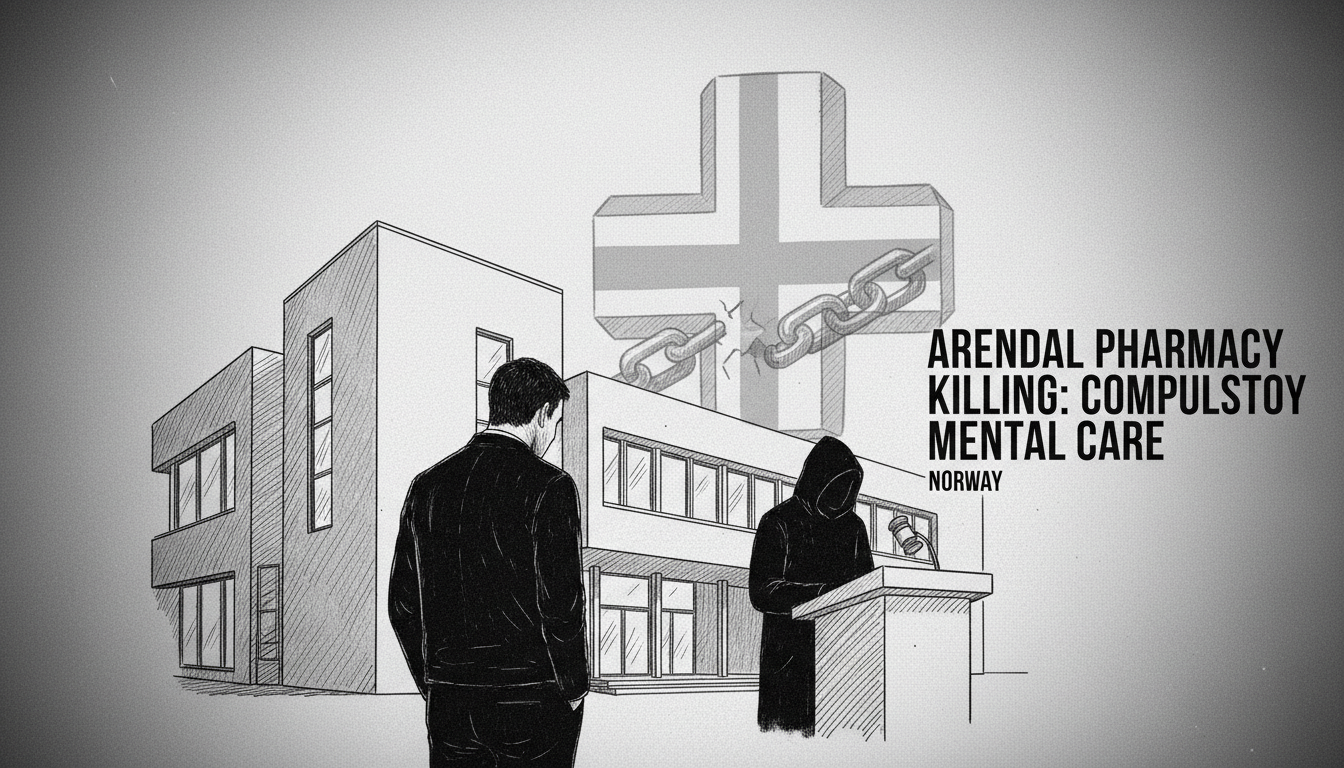A 64-year-old man from Arendal received a sentence of compulsory mental health care for killing a pharmacy employee. The court found him not criminally responsible for his actions during the fatal attack.
The victim was Miriam Daniela Ayres Cea, a 35-year-old woman from Grimstad. She died on April 2 last year while working at a pharmacy in central Arendal. The attack occurred as she placed an advertising sign in the pedestrian street.
The assailant approached from behind and stabbed her in the neck. She managed to return inside the pharmacy but died shortly afterward from her injuries.
Norway's legal system distinguishes between criminal responsibility and mental state at the time of offense. When courts determine someone was psychotic or severely mentally ill during a crime, they cannot receive prison sentences. Instead, they enter compulsory mental health care systems.
The Agder Court of Appeal confirmed the district court's earlier ruling. Both courts agreed the man lacked criminal responsibility due to his mental condition during the attack.
This case highlights Norway's approach to mentally ill offenders. The system prioritizes treatment over punishment when severe mental illness affects criminal behavior. Compulsory mental health care aims to protect society while providing necessary medical treatment.
Arendal residents remember the shocking incident that disrupted their peaceful community. The killing occurred in broad daylight in the city's main shopping area. Many witnessed the aftermath as emergency services responded to the pharmacy.
Norwegian mental health laws allow for indefinite compulsory care when courts determine ongoing risk. Patients receive regular evaluations to assess their recovery progress and potential danger to society. The system balances public safety with humane treatment of mentally ill individuals.
Similar cases occasionally occur across Nordic countries. All maintain specialized systems for offenders with severe mental disorders. These systems operate separately from regular criminal justice processes.
What happens to mentally ill offenders after sentencing? They enter secure psychiatric facilities with intensive treatment programs. Release depends on medical assessments showing reduced risk to public safety. Some patients remain in care for many years while others recover more quickly.
The case continues to affect the local community and pharmacy workers across southern Norway. Many stores have reviewed security procedures since the incident. The victim's family and colleagues continue processing their loss while the legal process concludes.

